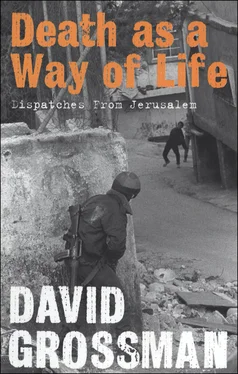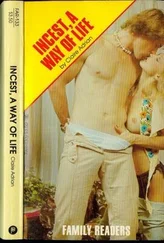David Grossman - Death as a Way of Life
Здесь есть возможность читать онлайн «David Grossman - Death as a Way of Life» весь текст электронной книги совершенно бесплатно (целиком полную версию без сокращений). В некоторых случаях можно слушать аудио, скачать через торрент в формате fb2 и присутствует краткое содержание. Год выпуска: 2013, Издательство: Bloomsbury Publishing, Жанр: Прочая документальная литература, на английском языке. Описание произведения, (предисловие) а так же отзывы посетителей доступны на портале библиотеки ЛибКат.
- Название:Death as a Way of Life
- Автор:
- Издательство:Bloomsbury Publishing
- Жанр:
- Год:2013
- ISBN:нет данных
- Рейтинг книги:5 / 5. Голосов: 1
-
Избранное:Добавить в избранное
- Отзывы:
-
Ваша оценка:
- 100
- 1
- 2
- 3
- 4
- 5
Death as a Way of Life: краткое содержание, описание и аннотация
Предлагаем к чтению аннотацию, описание, краткое содержание или предисловие (зависит от того, что написал сам автор книги «Death as a Way of Life»). Если вы не нашли необходимую информацию о книге — напишите в комментариях, мы постараемся отыскать её.
Death as a Way of Life — читать онлайн бесплатно полную книгу (весь текст) целиком
Ниже представлен текст книги, разбитый по страницам. Система сохранения места последней прочитанной страницы, позволяет с удобством читать онлайн бесплатно книгу «Death as a Way of Life», без необходимости каждый раз заново искать на чём Вы остановились. Поставьте закладку, и сможете в любой момент перейти на страницу, на которой закончили чтение.
Интервал:
Закладка:
But there is also another aspect, a mirror image of the important change that this visit is generating. It has to do with the way the land of Israel, and the Jew, now appear to believing Catholics.
Another personal story: Some years ago I was travelling in Portugal. One night I arrived in a village in the north and lodged in a small family hotel. I wanted to call home. The hotel proprietress volunteered to connect me with the telephone exchange. She asked me where I wanted to call, and I told her “Jerusalem.” She gave me a strange look and began to laugh. “That can’t be,” she said. “You can’t dial Jerusalem.” When I asked why, she said quite simply, “Because Jerusalem is in heaven.”
But when John Paul II is in Israel, all his millions of believers, in all corners of the world, meet Israel. Not only the Holy Land, but the real, quotidian Israel, in which there are flesh-and-blood Jews, who are in no way just an abstract symbol of anything.
Because that, perhaps, is the Jewish people’s great tragedy — throughout the generations others, the Christians in particular, viewed them as a symbol, as an allegory or metaphor for something else, as an exceptional entity, possessing powers beyond nature, or below it, as the Nazis put it in their definition of the Jew as untermensch.
For thousands of years the Jew was set apart, exiled from reality. From the familiar. His concreteness and humanity were confiscated through the most subtle means of demonization. The wandering Jew, the eternal Jew, Judas Iscariot, the poisoner of wells, the elders of Zion, and hundreds of other Satanic and grotesque images percolated into folklore, religion, language, literature, even science. Perhaps as a result, the Jews took comfort in a no less dangerous faith, that of self-idealization, regarding themselves as a chosen people, a people set apart.
The state of Israel today is an attempt by Jews to live a life that is not ideal, not demonic. To live reality itself. The normal life of a people living in its country, on its land, raising its children, defending itself with its own strength, and trying, at last, to find a way to conduct normal relations with its neighbors.
The Pope now sees this new, very fragile normality, and so do the thousands of pilgrims who came with him, and his billion believers, and all those who watch his journey on television. I say this without forgetting all the difficult problems that Israel has become entangled in during these many decades. Also, without forgetting the injustice that it still inflicts on others. But through the Pope’s private eyes, and through the eyes of the generations that he represents, it seems to me that we can also make out the new and growing desire of the Jewish people to be, finally, part of life, not just part of a story, of a myth, of a heavenly Jerusalem.
Day Five: Mass in Nazareth
The world held its breath for a minute. A man, old and sick, knelt and communed with his God. In the midst of the worldwide media tumult, in the heart of the almost Woodstock-like euphoria that has overcome nearly everyone who has a part in the visit, a single man closed his eyes and was entirely alone. In this journey of his, John Paul II has succeeded in excising layers of spiritual, political, and religious cataract from many things he has touched. Yesterday, and not for the first time, it was possible to appreciate for a moment the secret of this man’s personal charisma, even in his dealings with the media.
Maybe it is his appearance. Anyone can immediately empathize with his stooped back, the tremor in his hands, his slow movements, his physical agonies. Maybe it’s because of the different, so untelegenic tempo of his movements, of his steps, of his reticent gaze, watching the commotion surrounding him like someone gazing at life from elsewhere, from some other dimension. Perhaps it is because of his rare ability to guard his privacy — even his intimacy — in the middle of the hue and cry surrounding him. Either way, he forces the media to cast aside their conventions about how they relate to a subject. When we see his image on the television screen, we intuit simultaneously his symbolic, ceremonial figure, as well as the individual man on whom we can project our sensibilities and deepest wishes, perhaps even better than on that symbol, the official figure. Here is food for thought: It’s precisely those qualities that make the man Karol Wojtyla so untelegenic by the merciless normal criteria that make him so human and moving, a real media megastar.
A similar paradox, deceptive and much more problematic, has to do with the personal qualities of this man, and of the religious establishment he represents.
When he knelt, we forgot for a moment what surrounded him: a huge church building, impressive in its beauty, but grandiose, ostentatious, built at a cost of millions of dollars. To an outsider, a nonreligious one, the church in Nazareth looks like a metaphor for spiritual coagulation, a kind of elephantiasis of the private faith between man and his God. The church seems to be completely foreign to the spirit of simplicity and humility, and to the modesty of Jesus himself.
And for a moment we also forgot that this Pope vehemently opposes birth control, and in so doing prevents progress in the status of women and social development in Third World countries. Still, he knelt in the Church of the Annunciation in Nazareth, in the place where, according to the Catholic faith, Mary received the announcement of her pregnancy. And at that moment I felt how all this exaggerated magnificence, all the flab of this overly wealthy, overly powerful, materialistic, bureaucratic, conservative establishment vanished for a single moment, and withdrew to its real roots, to the sensibility that created it. It harked back to an era when religious faith — and not just Christian faith — was a matter of private dialogue between man and his Creator, without trying to impose itself, generating rivers of blood, on other people. Suddenly there was just one elderly man, his body anguished, and he knew that all the magnificence and grandeur around him did not protect him from pain, and from the most profound human fear. Even the most secular of eyes, eyes which cannot and do not want to find comfort in any religious faith, could then see the kernel of religious emotion, and mourn for what has happened to this authentic sentiment over the course of thousands of years.
Day Six: In Jerusalem
Jerusalem is a hard city. Every one of its inhabitants knows it. History is so dense here that it sometimes seems as if the city turns you, despite yourself, into a player on a huge stage, with a single huge but hidden eye watching you.
Perhaps that’s why everything in it is overstated, larger than life. Every twinge turns immediately into the agonies of the Son of God; every soccer victory augurs the Messiah’s arrival. Every love affair resonates with the love of David and Bathsheba. It’s hardly surprising, then, that each year a hundred or so tourists lose their mind in the city. This strange, unique phenomenon even has an official diagnosis: the Jerusalem Syndrome.
Yes, it is hard to live a normal, inconsequential life here. “Jerusalem, a port on the shores of the eternal,” the Jerusalem poet Yehuda Amichai wrote. And eternity, what can I tell you, is a pain. The people, even the most common people, are full of a strange self-importance, inflated with the glory of the past. They are quick to be insulted, always feeling as if they are the representatives of something awesome. There’s too much holiness in the air. I remember, from my childhood, a tiny back yard on one of the city’s side streets where huge graffiti summed up the nature of this city: HOLY SITE — NO PISSING ALLOWED!
Four thousand years of history, of civilization, of the different cultures that were created here and passed through here. The cradle of Jewish and Christian thought, the center of the three great monotheistic religions. So much wisdom, life experience, knowledge of human suffering and weakness have collected here, and what have we all really learned? Have we — Jews, Christians, and Muslims — really succeeded in being better people, more tolerant neighbors of our neighbors?
Читать дальшеИнтервал:
Закладка:
Похожие книги на «Death as a Way of Life»
Представляем Вашему вниманию похожие книги на «Death as a Way of Life» списком для выбора. Мы отобрали схожую по названию и смыслу литературу в надежде предоставить читателям больше вариантов отыскать новые, интересные, ещё непрочитанные произведения.
Обсуждение, отзывы о книге «Death as a Way of Life» и просто собственные мнения читателей. Оставьте ваши комментарии, напишите, что Вы думаете о произведении, его смысле или главных героях. Укажите что конкретно понравилось, а что нет, и почему Вы так считаете.












